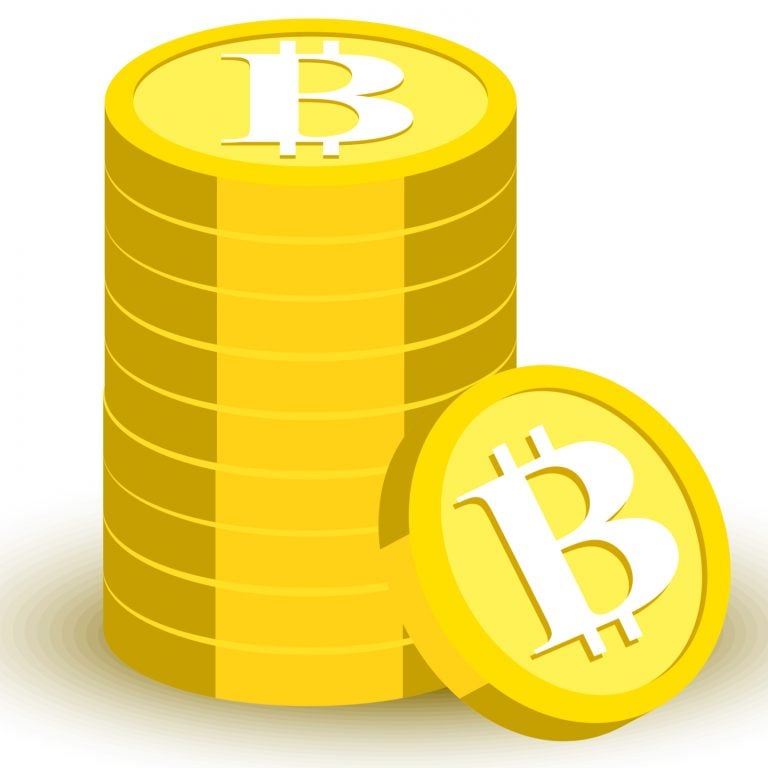As the old maxim asserts: those who made the most money in the gold rush were those who sold shovels. With our own digital gold rush in a downturn, however, the shovels aren’t selling so well, as mining companies themselves are struggling to move hardware because miners are struggling to turn a profit.
As prices continue to flirt with key support points, both suppliers and miners are finding it harder to realize the gains they grew accustomed to in 2017, but people still need hubs to trade what has already been struck. In this case, marketplaces are doing just fine.
At least, that’s what a handful of exchange representatives conveyed to Bitcoin Magazine at this year’s Blockchain Futurist Conference. Investors may be fretting over their returns; some may even be in a state of financial panic. But to exchange operators like Huobi, this volatility is par for the course, and it’s nothing that the industry hasn’t seen before.
“Historically speaking, even though this is a bearish market overall, it’s not like the bitcoin price dropped to $500. I don’t think we’ll ever go back to that point, because so many people are aware of it. Eventually the market will go back,” Ross Zhang, the CEO of Huobi Canada, stated to Bitcoin Magazine.
Looking down the barrel of a bear market, a top exchange like Huobi, which Zhang claims is no stranger to $1 billion in daily trading volume, has had little trouble staying afloat. Except on the market’s worse days, Huobi seems to have little trouble maintaining healthy trading volumes.
“It’s pretty stable for us because we’re [a top three exchange]. But of course, on bad days — like a few days ago when the market was down 5-10 percent — our trading volume went down. But overall, our volume is pretty stable and I think that’s the advantage of [being] a big exchange.”
Zhang implied that the steady volume Huobi sees is a luxury of its scope and scale, going further to indicate that features like margin trading make it attractive to investors looking to make money via shorting.
Huobi’s prominence puts it into the company of exchanges like Binance and OKEx, which also regularly transcend $1 billion in daily trading volume. According to data on CoinMarketCap, the exchange has seen a -48.75 percent decrease in trading volume over a seven-day period, a drastic and abnormal departure from its usual numbers (just last week, this seven-day change was +5.16).
To put this figure into perspective, the respective top 10 exchanges by volume have seen the following changes over the past seven days (Huobi, at number four, is excluded): Binance (+1.64 percent), OKEx (+9.22 percent), Bitfinex (+59.15 percent), HitBTC (+10.08 percent), ZB.com (-5.12 percent), BCEX (+5.59 percent), Bibox (-4.75 percent), Bit-Z(+39.95 percent) and UpBit (-11.72 percent).
Certainly, some exchanges, such as Huobi and UpBit, have seen a drastic decrease in volume over the past week. But this is contrasted by those, such as Bitfinex and Bit-Z, that have experienced the opposite effect, and, for all of those in between, their volumes seem to toe pretty close to the line.
While there is by no means an equilibrium across each market, these trading volumes paint a diverse picture for not just how top exchanges have responded to the bear market, but also how often those in the top 10 can change places with each other, and volumes can oscillate between exchanges quite fluidly.
However, as Andrei Poliakov, president of up-and-coming Canadian-based Coinberry, told Bitcoin Magazine, exchange success — and the comfort of steady business — is not reserved for the big boys alone. In fact, Poliakov suggested that Coinberry is experiencing exponential growth compared to its competitors, even in market conditions as bleak as these.
“The volume we’ve been seeing has been tremendous, both in terms of user growth and trading volume. We’ve seen triple digit growth month over month since we started our advertising campaign earlier and the response from our customers has been phenomenal, as well.”
Of course, as he admits, much of this success correlates with Coinberry’s own marketing campaign and PR efforts. Even so, its mounting success could be indicative that investor demand to enter the market is in no short supply.
Still, Huobi and Coinsquare, another Canadian exchange that averages roughly $10 million in daily volume, have seen new user registration stagnate as of late.
“The number of new users joining Coinsquare has been fairly flat since the beginning of summer. There is always a tick up in bigger market moves, but we haven’t seen enough of a positive move yet in 2018 to drive a meaningful increase in new users,” Cole Diamond, the CEO of Coinsquare, told Bitcoin Magazine.
On the contrary, Zhang expressed that Huobi is “seeing an increase in users.” In a down market, it’s harder to onboard new customers, he admitted, but having alternate services like margin trading helps. He went on to say that conditions such as these furnish the potential for future growth, stating that it’s “a good time to educate investors and think about what we should do next.”
Both Diamond and Zhang believe would-be investors lack the proper impetus to enter the market, and for those who are already in, they may be looking for a sufficient buying signal to increase their stacks. The SEC’s recent rejection of the Winklevoss ETF — and its subsequent move to delay its decisions on a handful of pending filings — comes to mind. Events such as these, coupled with the market’s downward volatility and other “uncertainties” right now, have “investors or traders … sitting on the sidelines and watching the market to pull back or to wait for the next good news to invest,” Zhang expressed.
Lacking proper incentives to enter the market, Diamond also revealed that Coinsquare is “seeing a lot of people holding and watching to see if there is a break down further or a move up by the international market buying the dip.”
Offering another perspective, Poliakov said that, in Coinberry’s experience, now that prices are “going down, you do have some people who start selling, but the amount of people buying is astonishing.”
This buying, he continued to explain, is contingent on which of Coinberry’s two assets (bitcoin or ether) are underperforming on that day. Lately, ether, which recently dipped to a yearly low after losing 50 percent of its value in two weeks, has experienced “an immense amount of interest,” Poliakov revealed.
Fo Huobi, given ether’s waning strength in recent weeks, Zhang noted that trading volumes and prices for coins like EOS, ontology and lisk are up against the market’s second largest asset.
Perhaps because they find themselves in relatively stable positions amidst a turbulent market, each exchange representative presented their arguments with a calm demeanor and a positive outlook. Poliakov finds that “people see the long-term value that cryptocurrency has and the long-term use potential, specifically when you’re talking about bitcoin and ether,” both of which he believes have already proven their use cases.
“Once the masses become aware of this and industries become aware of this, that’s when you’re really going to see a growth in demand,” he continued.
Diamond agrees. He sees the recent downturn as a natural and rational response to irrational and unsustainable growth. This growth, he argues, will return — perhaps sooner than some might think.
The crypto ecosystem is doing fine. The run up in 2017 was too much, too fast, so a correction was needed. We had anticipated it, which is why we raised capital while we were immensely profitable during that surge. We expect a return to a bull market with a focus on high-value assets in the not too distant future.
 Bitcoin’s elusive creator Satoshi Nakamoto owns 1 million BTC, plus a corresponding number of BCH and other forked coins. That’s always been what we were led to believe, ever since a 2013 analysis by Sergio Lerner. A new analysis by Bitmex Research has now called that figure into doubt, suggesting that Satoshi’s stack, while still […]
Bitcoin’s elusive creator Satoshi Nakamoto owns 1 million BTC, plus a corresponding number of BCH and other forked coins. That’s always been what we were led to believe, ever since a 2013 analysis by Sergio Lerner. A new analysis by Bitmex Research has now called that figure into doubt, suggesting that Satoshi’s stack, while still […]

 Even if Bitmex Research is correct – and by its own admission it is hard to say for certain – Satoshi still has a good 700k BTC at his disposal. Thus the ‘loss’ of 300k BTC, despite amounting to around $2 billion, may seem immaterial in the grand scheme of things, given that it is assumed Satoshi’s coins will never be spent. However, the ownership of the 1 million BTC mined by an early adopter or adopters factors into a number of other calculations pertaining to coin distribution.
Even if Bitmex Research is correct – and by its own admission it is hard to say for certain – Satoshi still has a good 700k BTC at his disposal. Thus the ‘loss’ of 300k BTC, despite amounting to around $2 billion, may seem immaterial in the grand scheme of things, given that it is assumed Satoshi’s coins will never be spent. However, the ownership of the 1 million BTC mined by an early adopter or adopters factors into a number of other calculations pertaining to coin distribution.



 On August 20, 2018, maintainers of the most used full node BCH client have announced the release of Bitcoin ABC version 0.18.0. The version release follows the recent announcement from the firm Nchain, who recently revealed they were launching a client called Bitcoin SV, but with completely different upgrade features. Also read: Fivebucks.com: Meet the Freelancer’s […]
On August 20, 2018, maintainers of the most used full node BCH client have announced the release of Bitcoin ABC version 0.18.0. The version release follows the recent announcement from the firm Nchain, who recently revealed they were launching a client called Bitcoin SV, but with completely different upgrade features. Also read: Fivebucks.com: Meet the Freelancer’s […]

 Following the announcement the founder of Coingeek’s mining pool, Calvin Ayre explains his hash rate will be pointed at Bitcoin SV when it launches.
Following the announcement the founder of Coingeek’s mining pool, Calvin Ayre explains his hash rate will be pointed at Bitcoin SV when it launches.